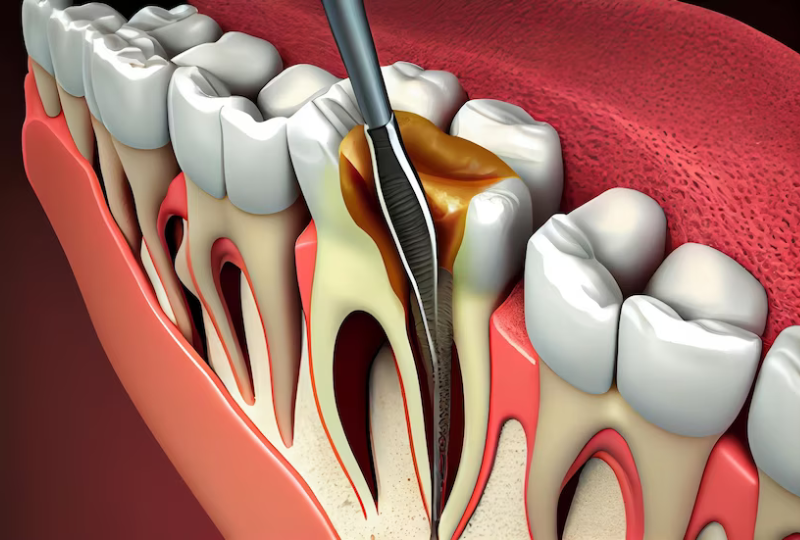2200 AW Grimes Blvd, Suite 100 Round Rock, TX 78665
Signs and Symptoms That Indicate You Might Need a Root Canal

Entering the realm of dental discomfort can be disconcerting, especially when it involves the prospect of a root canal. Unraveling the enigmatic signs and symptoms that signal the need for this procedure is akin to deciphering a crucial message for your oral health. In this interactive guide, we navigate through the labyrinth of dental cues, offering a straightforward roadmap to recognize the red flags demanding attention. Understanding these indicators becomes paramount in preserving your natural smile. Let’s embark on a journey into the world of root canal symptoms, demystifying complexities to empower you with essential insights for optimal dental care.
Understanding Root Canal Treatment
Root canal treatment involves a meticulous process aimed at saving an infected or decayed tooth. This dental procedure entails removing the damaged pulp, cleansing the interior, and sealing the tooth to prevent reinfection. The meticulousness of this treatment lies in its ability to salvage a tooth that might otherwise face extraction. By addressing severe infections or decay at their source, root canals in Round Rock alleviate pain and restore dental health. Its significance extends beyond immediate relief, offering a chance to preserve your natural tooth structure for enduring oral well-being.
Signs and Symptoms Indicating the Need for a Root Canal
1. Persistent and Intense Tooth Pain: Continuous or intense pain, especially when biting or applying pressure on the tooth, can be a clear indicator of severe tooth decay or infection.
2. Sensitivity to Temperature Changes: If you experience heightened sensitivity to hot or cold substances, even after they have been removed, it could signify nerve damage within the tooth.
3. Swollen Gums: Swelling in the gums around a specific tooth, accompanied by tenderness or a small bump, might indicate an abscess—a sign of severe infection.
4. Discoloration or Darkening of the Tooth: A tooth that has noticeably changed color (usually becoming darker) might suggest damage or infection deep within the tooth.
5. Prolonged Sensitivity or Pain Post Dental Procedures: Lingering pain or discomfort following dental work, which doesn’t subside within a reasonable period, could indicate underlying issues requiring a root canal.
6. Visible Signs of Infection: Sometimes, visible signs like pus around the affected tooth or a pimple-like bump on the gums can point towards an abscess, necessitating immediate attention.
7. Cracked or Damaged Tooth: A crack or chip in the tooth can expose the nerve, leading to infection and necessitating a root canal to save the tooth.
In conclusion, recognizing the signs indicating the need for a root canal treatment in Round Rock is pivotal in safeguarding your dental health. By understanding the symptoms discussed here—persistent tooth pain, sensitivity, gum swelling, tooth discoloration, and more—you empower yourself to take proactive steps toward timely dental care. Remember, prior intervention is key to preserving your natural teeth and preventing further complications. Prioritize regular dental check-ups, stay attuned to changes in your oral health, and promptly consult a qualified dentist if you notice any concerning symptoms. Your commitment to dental well-being ensures a brighter, healthier smile for years to come.




